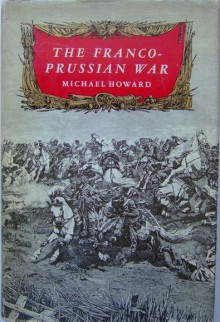
Of all of the wars fought in Europe between 1815 and 1914, none was more important in terms of its impact than the Franco-Prussian War. The culmination of Otto von Bismarck's strategy for unifying the German states into a single country, it saw the displacement of France as the dominant Continental power and the formation of a new nation that would dominate events in Europe for the next three-quarters of a century.
Such an epochal conflict is well deserving of study, yet for Geoffrey Wawro to write this book is in some respects an act of bravery. For decades Michael Howard's The Franco-Prussian War has been the go-to source for readers seeking an English-language history of the conflict, and little has changed since its publication in 1961 to undermine its value. Yet Wawro's book is a worthy addition to the literature on the war, thanks to the directness of his analysis and the clarity of his prose. He provides readers with a superb introduction to the conflict, starting with an analysis of its political background and the strengths and weaknesses of the two armies before detailing the major campaigns of the war. From his analysis emerges a tale of two powers, one rotted yet still possessing formidable strengths, the other dynamic but suffering from its own set of flaws. Wawro makes it clear that while the Prussians enjoyed several advantages the outcome was far from ordained, with the flaws of French leadership being a decisive factor in its defeat.
Wawro's book illustrates the depth of France's humiliation in their defeat. In doing so, he helps to underscore the long-term significance of the war, as France would emerge from it determined to undo its loss. Though this may not have made the conflict that took place four decades later inevitable, the seeds for it were clearly sown in 1870-1. To understand why is just one reason why this book is necessary reading for every student of modern European history, as well as anyone seeking an accessible overview of this pivotal clash of powers


 Log in with Facebook
Log in with Facebook 






